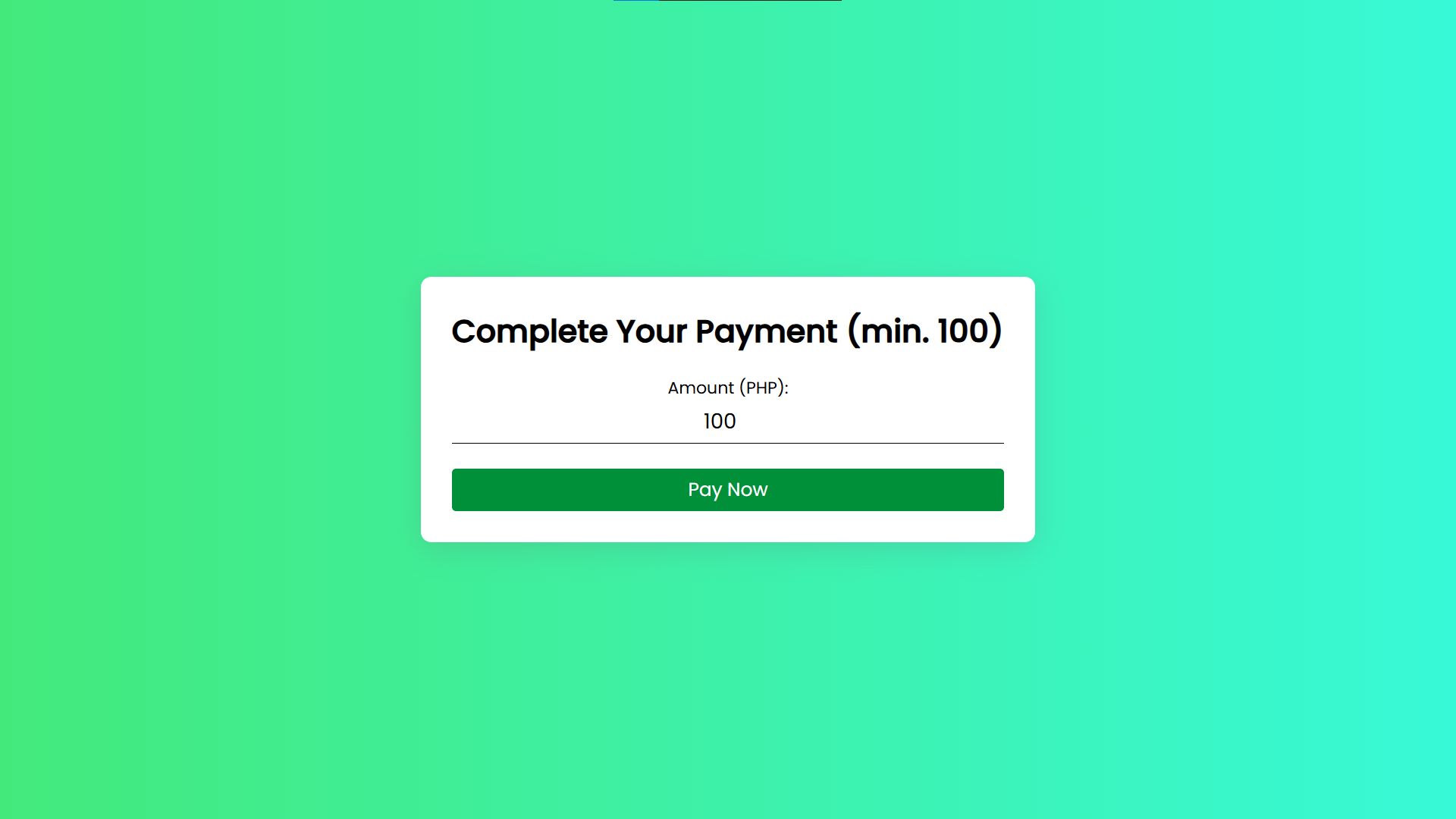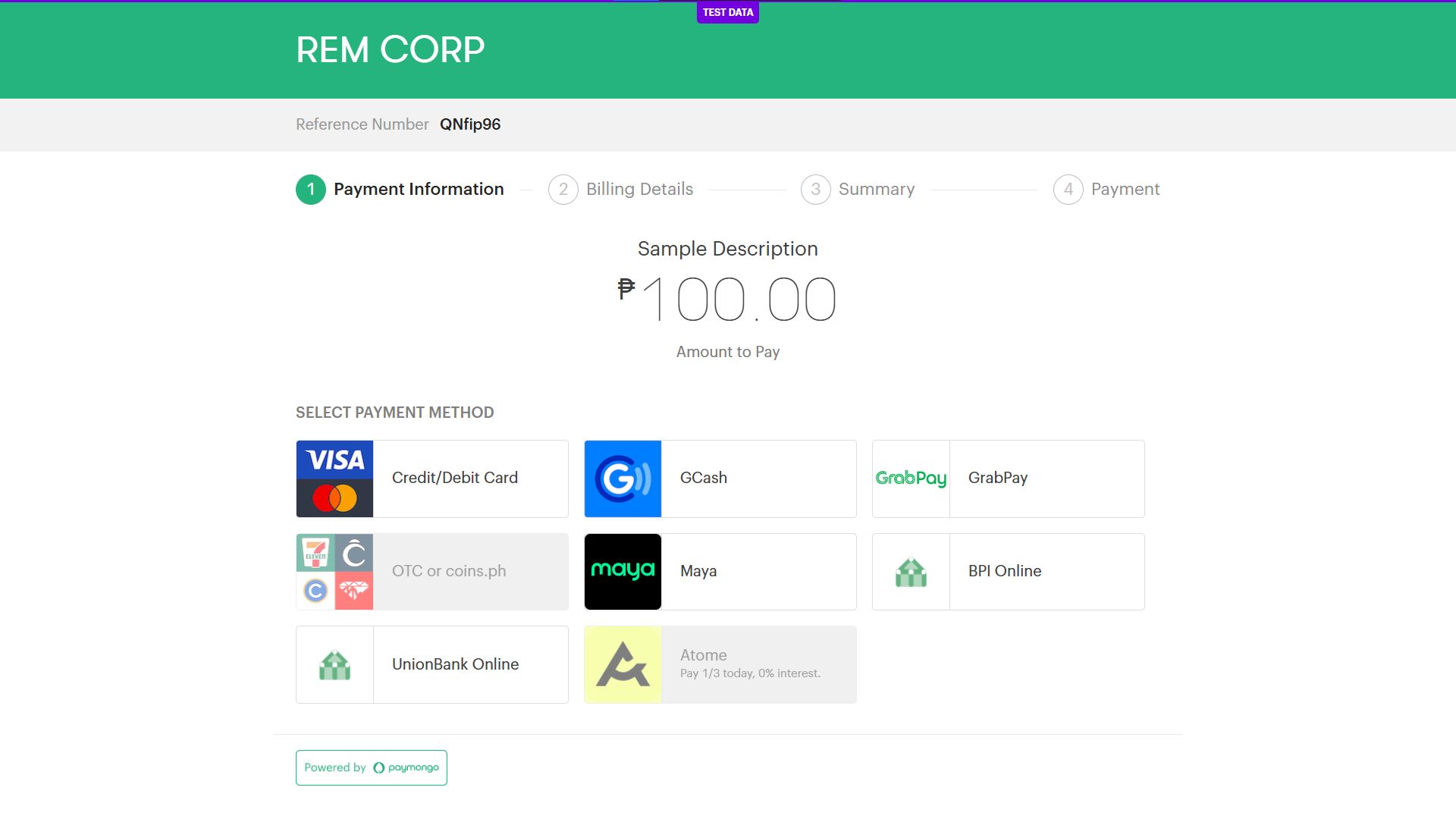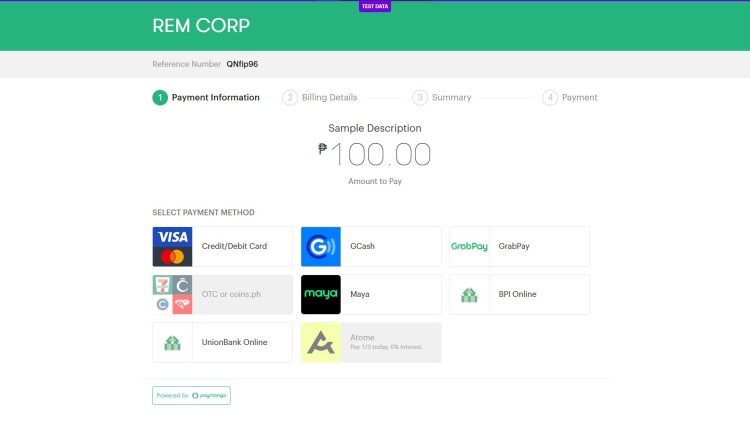Online Payment Method Using PHP and PayMongo with Source Code
Welcome to the Online Payment Method Using PHP and PayMongo project! This solution offers a seamless way to integrate online payments into your web applications, tailored specifically for businesses operating in the Philippines. By leveraging PayMongo's secure payment gateway, you can effortlessly handle transactions, ensuring that customers experience a smooth and reliable checkout process. The project provides a complete setup, including a user-friendly interface for entering payment amounts, a robust PHP backend for processing transactions, and webhook handling to track payment statuses in real-time.
Designed with simplicity and flexibility in mind, this project utilizes modern web technologies like HTML, CSS, PHP, and JSON to deliver a robust payment system. Developers can easily configure the PayMongo API and adapt the code to fit their specific needs. Whether you're setting up an e-commerce site or a donation platform, this solution ensures secure transactions and efficient payment processing, helping you focus on growing your business while providing a great experience for your users.
You may also check some simple PHP projects:
- Profile Registration without Refresh/Reload
- Drag and Drop Image Upload
- Leads Manager Tool
- Contact Manager with Export to VCF
- Road Accident Map Marker
Key Features:
1. Payment Interface:
- User-friendly HTML form for entering payment amounts.
- Dynamic PHP backend that processes transactions and generates a secure payment link.
2. PayMongo Integration:
- Utilizes PayMongo's API to create payment links.
- Automatically redirects users to the PayMongo checkout page.
3. Webhook Handling:
- Processes webhook notifications to confirm payment status.
- Logs successful and failed payments for tracking and debugging.
4. Secure Transactions:
- Sensitive data (e.g., API keys) are securely managed.
- Implements HTTPS requests via cURL for API communication.
Technologies Used:
- Frontend: HTML5, CSS3 (with Google Fonts)
- Backend: PHP 7/8
- API Integration: PayMongo REST API
- Data Handling: JSON
- Networking: cURL
- File Management: Logs payment data in
payments.log
How to Use:
- Open the HTML file (
index.html) in your browser. - Enter the payment amount (minimum 100 PHP) and click Pay Now.
- You will be redirected to the PayMongo-hosted payment page for checkout.
Sample Screenshots of the Project:
Landing Page

PayMongo Payment

How to Run?
- Download and Install XAMPP.
- Download the provided source code zip file.
Installation/Setup:
- Extract the provided source code to the htdocs folder.
- Set up a PayMongo account and obtain your Secret Key.
- Replace the placeholder secret key (
$secretKey) increate_payment.phpwith your actual PayMongo Secret Key. - Open your browser with the link "http://localhost/paymongo-payment-method/".
Video Demonstration for Installation/Setup:
Conclusion:
In conclusion, the Online Payment Method Using PHP and PayMongo project offers a streamlined, secure, and flexible solution for integrating online payments into your web applications. With its easy-to-use interface, robust backend, and real-time webhook handling, it simplifies transaction management for businesses and developers. By leveraging PayMongo’s powerful API, you can provide a reliable payment experience for your customers, ensuring smooth operations and enhanced user satisfaction. This project lays a strong foundation for future enhancements, empowering you to expand and adapt it to your specific needs.
That's it! I hope this "Online Payment Method Using PHP and PayMongo" will assist you on your programming journey, providing value to your current and upcoming PHP projects.
For additional tutorials and free source code, explore our websites.
Enjoy Coding :>>
Note: Due to the size or complexity of this submission, the author has submitted it as a .zip file to shorten your download time. After downloading it, you will need a program like Winzip to decompress it.
Virus note: All files are scanned once-a-day by SourceCodester.com for viruses, but new viruses come out every day, so no prevention program can catch 100% of them.
FOR YOUR OWN SAFETY, PLEASE:
1. Re-scan downloaded files using your personal virus checker before using it.
2. NEVER, EVER run compiled files (.exe's, .ocx's, .dll's etc.)--only run source code.
Comments
Add new comment
- Add new comment
- 2528 views

